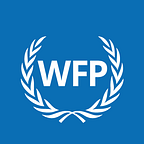Wilson Kaikai: “Increased demand for Theories of Change in South Sudan”
Wilson Kaikai hails from the same village in Maasailand, Kenya as 800m world champion, David Rudisha. In his role as the Head of the Monitoring, Evaluation, Accountability and Learning Unit at the country office in South Sudan, he is embedding an evaluation culture with the same record-breaking speed.
What does your role in the South Sudan country office entail?
It is a very exciting function. Because of the sheer size of the South Sudan country operation, the need to look at efficiency of assistance to crisis affected populations and refugees is critical. I lead a team that track the extent to which our cooperating partners implement agreements, and the delivery of assistance. We assess whether beneficiaries are receiving their entitlements as required, and track their safety, as well as feedback and complaints about the assistance we provide. This process monitoring happens on a monthly basis and allow us to take corrective action so that we can become better at providing support. We also collect food security and nutrition monitoring data to measure the outcomes of our interventions. And then, I provide support to centralized evaluations — acting as an interface with the Office of Evaluation and the country office to ensure that learning stems from the evaluation process and that programmes become adaptive based on the evidence generated from the function. It is a challenging role, but it is very fulfilling.
What were some memorable moments in this role?
I joined South Sudan in 2019, and just as I was settling in, Covid hit. There was a lockdown from February 2020 to June 2020. Despite the challenge of movement restrictions, we were still able to deploy remote monitoring surveys. In fact, for areas that had access to telephone coverage, our monitoring coverage in some offices improved, compared to before Covid. It was satisfying and memorable for me that even in the midst of a very difficult situation we were able to monitor effectively the risk of food diversion and taxation. And from the perspective of saving lives, because of the scale of the need, every single moment is memorable. For example, 800,000 people were affected by heavy flooding in 2021 — this was on top of Covid — and WFP was able to effectively mobilise and deploy assistance to those affected by the crisis.
What strategies do you use to embed a culture of evaluation within the country office?
You can aim to instil an evaluation culture, but if it isn’t resourced it’s a challenge. So, when we started the decentralized evaluation of Food for Assets activities, we did acknowledge the importance of having a dedicated focal person for the evaluation. We hired a national officer which implies that there is now a go-to person who can follow up on matters related to evaluations.
From a budgeting and planning perspective, we didn’t look at evaluation as a standalone. We planned and budgeted for evaluation like any other monitoring activity, and we are receiving a lot of support from management.
Apart from the R2 management system, we have our own customized tracking tool, so we’ve been actively tracking the implementation of recommendations from centralized evaluations, and activity managers have started to apply the findings to their programmes.
Lastly, we started to conduct Theories of Change for specific activities, which helps activity managers with evaluative thinking. We guide them on the question: if you implement this, what are the change pathways? When we started, the interim country strategic plan did not have a Theory of Change, but the teams have seen the value, and now we are getting demands from several activity managers for support on developing Theories of Change.
What are your reflections on the European Evaluation Society Conference?
The conference was extremely useful. It provided an opportunity to look at the depth and breadth of existing knowledge and evaluation practices. However, there should be a vision to better fuse the academic research and scholarly work, with the practice. The direct interaction between the theory of the evaluation function has to be enriched by what is going on in the field. Not just from a generalist approach, but also to be context specific. What applies in the humanitarian emergency context is different from resilience building and development contexts, and you cannot use a one-size-fits-all approach. Therefore, I would say, while it is important for scholarly work to keep exploring knowledge around the issue of the evaluation function, there should be cognisance of the fact that a lot of knowledge can be tapped from field level experience. More voices from the field need to be given an opportunity to present at the conference.
Tell us a little bit about yourself.
I am a father of two — a son (10) and a daughter (13). I like contributing to the community, using my expertise and networks to support community activities. I also like running and to stay active. I come from Narok, the same village in Masaailand, Kenya that delivered the 800m world champion, David Rudisha. In fact, his father was my primary school math teacher.
